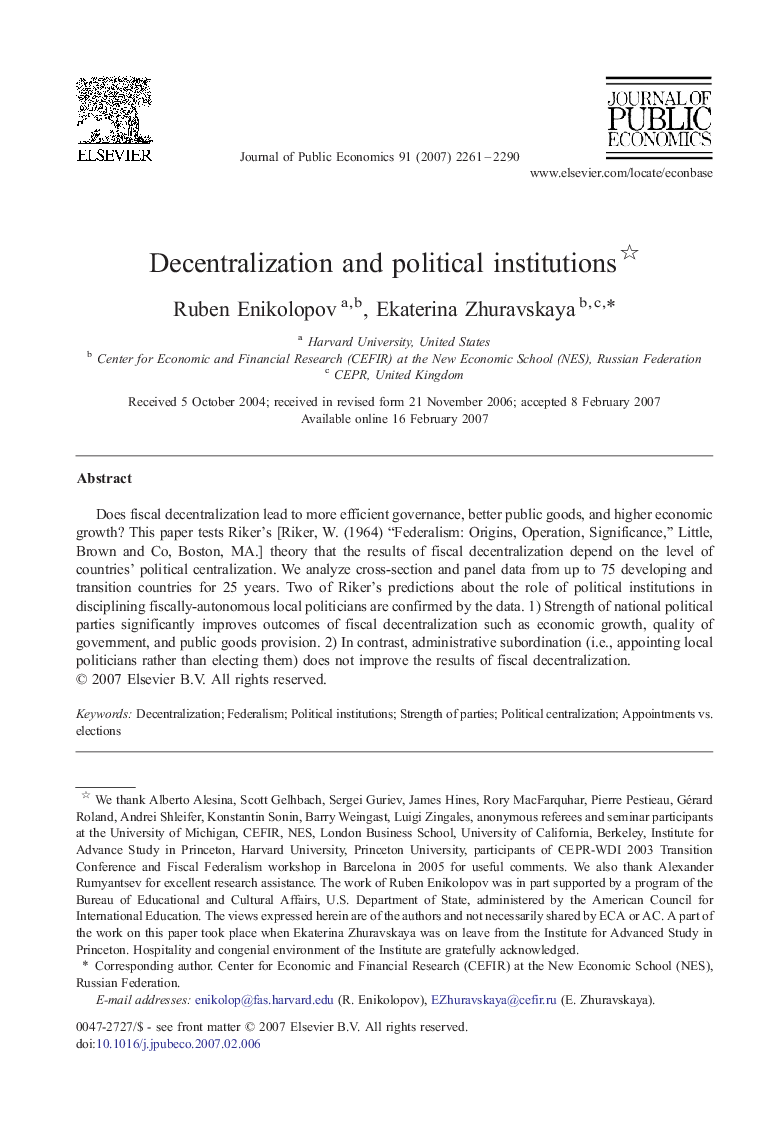| Article ID | Journal | Published Year | Pages | File Type |
|---|---|---|---|---|
| 970306 | Journal of Public Economics | 2007 | 30 Pages |
Does fiscal decentralization lead to more efficient governance, better public goods, and higher economic growth? This paper tests Riker's [Riker, W. (1964) “Federalism: Origins, Operation, Significance,” Little, Brown and Co, Boston, MA.] theory that the results of fiscal decentralization depend on the level of countries' political centralization. We analyze cross-section and panel data from up to 75 developing and transition countries for 25 years. Two of Riker's predictions about the role of political institutions in disciplining fiscally-autonomous local politicians are confirmed by the data. 1) Strength of national political parties significantly improves outcomes of fiscal decentralization such as economic growth, quality of government, and public goods provision. 2) In contrast, administrative subordination (i.e., appointing local politicians rather than electing them) does not improve the results of fiscal decentralization.
